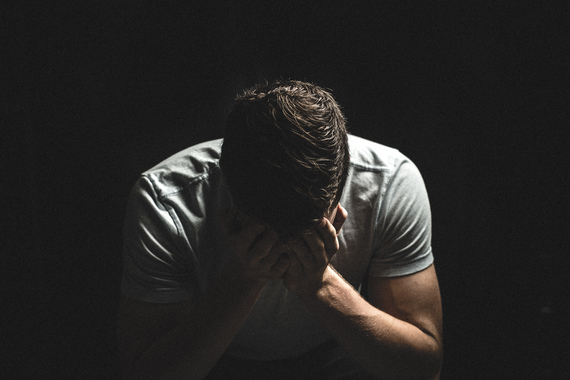A buzzing sound nudged me from a lazy Sunday morning snooze as a breaking news notification lit up the screen of my cell phone.
"Dozens dead in Orlando nightclub shooting," it read.
I am sick of these notifications. I am sick of death.
The familiar pang of sadness struck its usual chord in my gut followed by the nastiest feeling of all: The hollowness of helplessness entwined with my own privilege of lying in a safe bed.
In the aftermath of a visible and violent tragedy such as what happened in Orlando, it is tempting to lose heart and retreat into ourselves. To silence our phones and roll over and go back to sleep.
But we mustn't lose heart.
We have to look into the face of the world and believe that we are a vital part of it -- just like we've done for the past three decades.
We are Millennials and we are the Tragedy Generation.
The start of my senior year in high school was marked by watching passenger jets filled with human beings plunge into skyscrapers filled with other human beings on live television.
I went to college and graduate school in the dark shadow of 51 fatal mass shootings that ended the vivid lives of over 400 people including children at school. I started a family with my television, computer, and cell phone screens filled with images of dying bombing victims, war, and hate.
As a generation, we have been raised by tragedy. We've witnessed over and over again how precious and fragile life is.
Researchers always talk about how we're purpose-driven and motivated by the desire to make a social impact both at work and in life.
How could we not be?
As a generation, resilience is all we've known. Solidarity is how we've coped. We've been wired to not lose heart, to unite, to do whatever we can to make the world better.
When we see images of Orlando, we're not "desensitized" as the media researchers propose.
We're angry. We're sad.
But we mustn't lose heart.
Most of us are not directly and personally affected by this tragedy. And therefore, as we've done before, we must fight away the stifling feelings of helplessness and its destructive cousin apathy.
In reflection on the aftermath of this and the tragedies that have raised us, I want to offer some suggestions to not lose heart as you reflect this week:
1. Believe you still deeply matter.
Don't give up on your world; it needs you.
There is no society that exists "out there." You are society and society is you. While you may not be personally affected by the Orlando tragedy, you still occupy a small, yet critically important part of this world.
All around you is life. Focus this week on cultivating the important life that is your community, your next door neighbor, your family, and your friends.
You make a difference by default. You can choose what kind of difference you make.
2. Focus outward.
It can be easy during times of distant tragedy to pretend like nothing is happening, to isolate, and to normalize it with phrases and questions like, "What's wrong with society?"
As human beings, though, we were built for connection and community. Therefore, focusing outward can be a powerful way to cope.
In times of grief or struggle, it can be just as important as ever to reach out and connect. Join or create a support group. Go to coffee with friends and talk about what you are feeling. Discuss the events of this past weekend with your family and loved ones.
Talk to others and brainstorm ways to take action. Unity is powerful.
3. Teach by example.
These tragedies often remind me that we are all educators.
Whenever a person -- anywhere in the world and from any religion -- is taught to see another human as not human, a tragedy is already born.
We all have the capacity to teach. And the most powerful teaching comes not from a well-written Facebook post, but by example.
"The world is changed by your example, not by your opinion." -- Paulo Coehlo, Author
Focus intently on modeling the love you want human beings to show each other, especially to our next generation and our children.
4. Take care.
And finally, take care of yourself. Go on a bike ride. Watch your favorite movie. Go out to eat. Journal, or just sit outside in the sun. Do what you love to do.
A clearer mind can help you feel grounded and safe.
As a generation raised by tragedy, we are also best equipped to end it.
It can start this week, right where you are.
